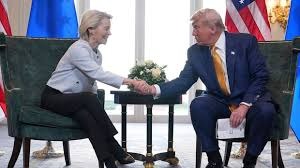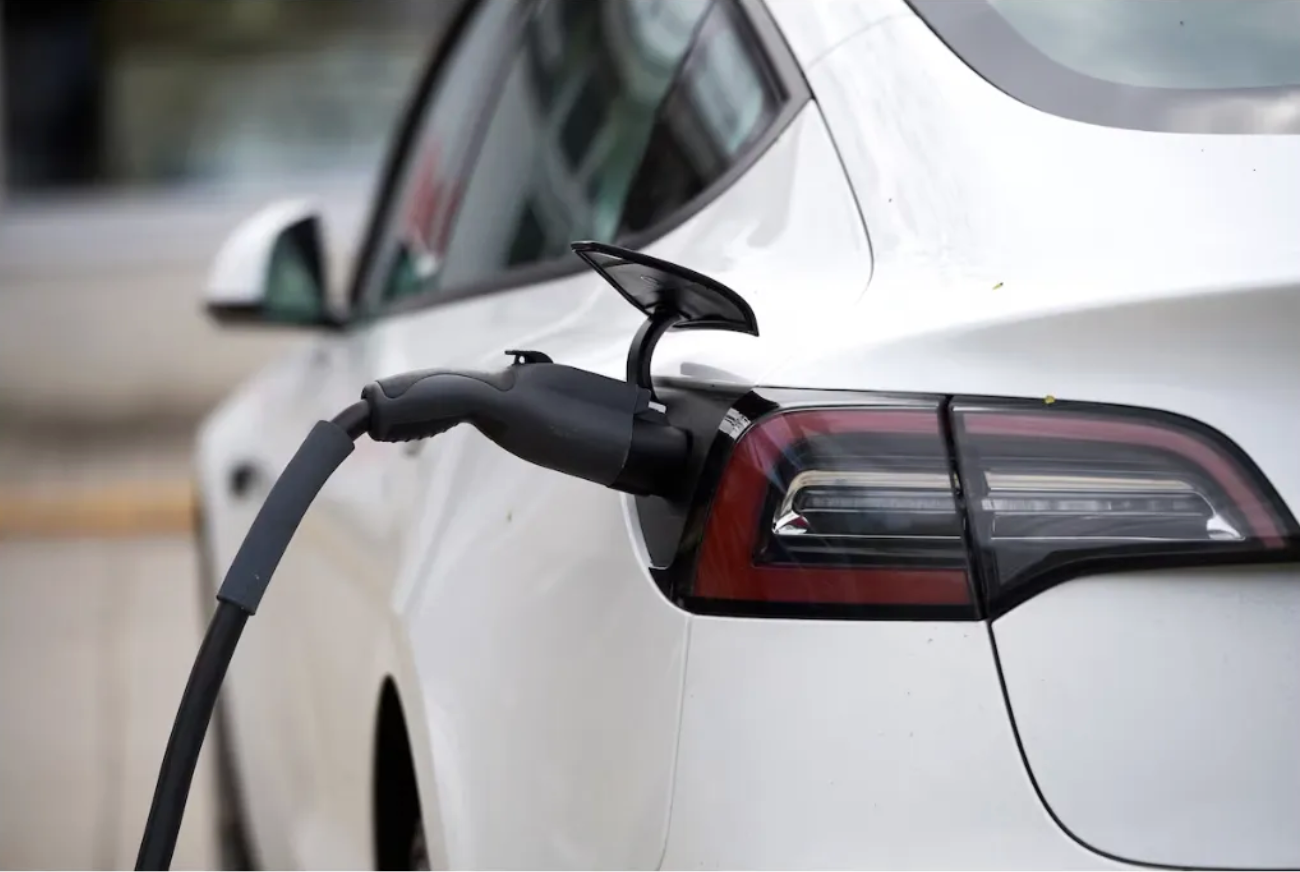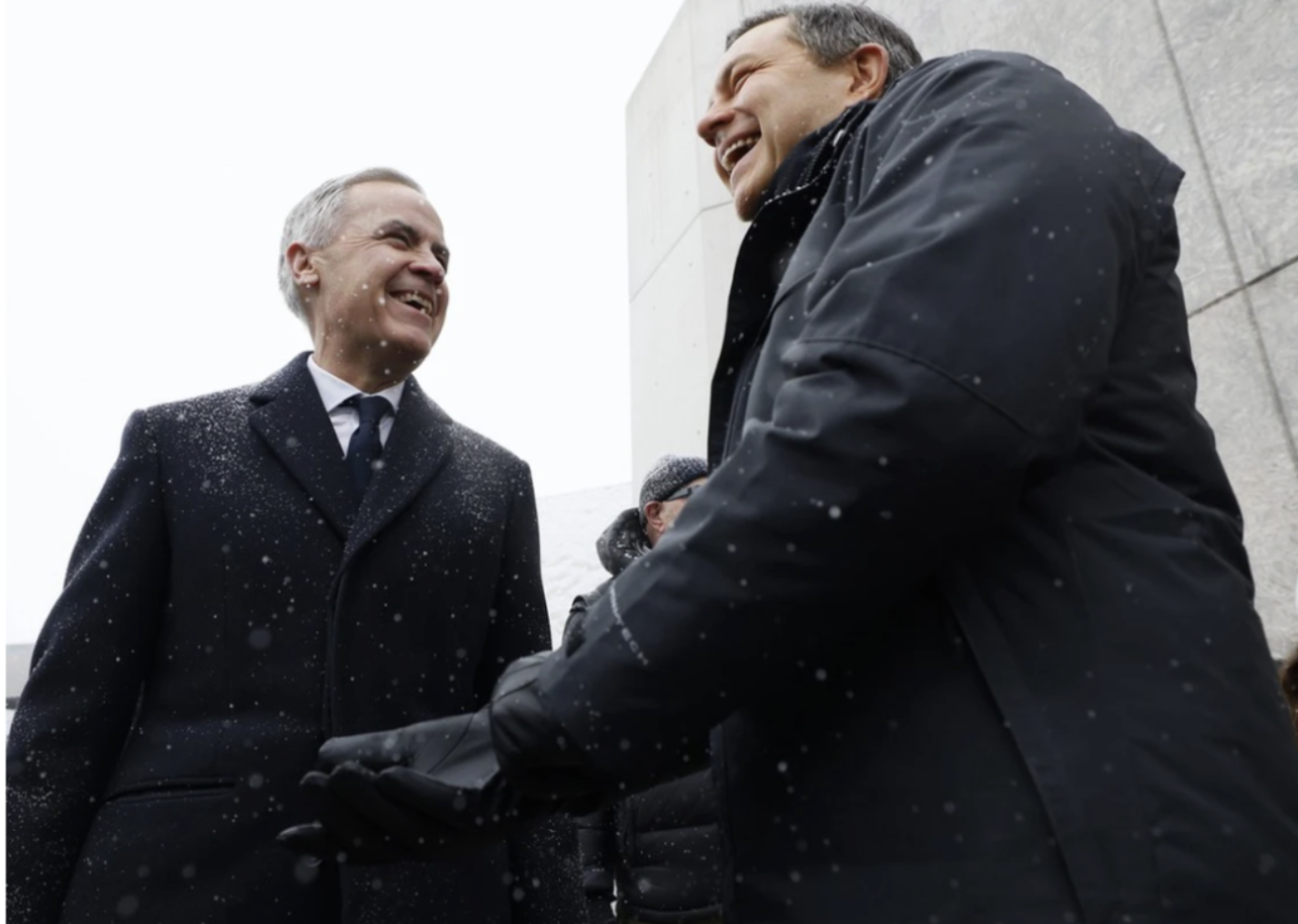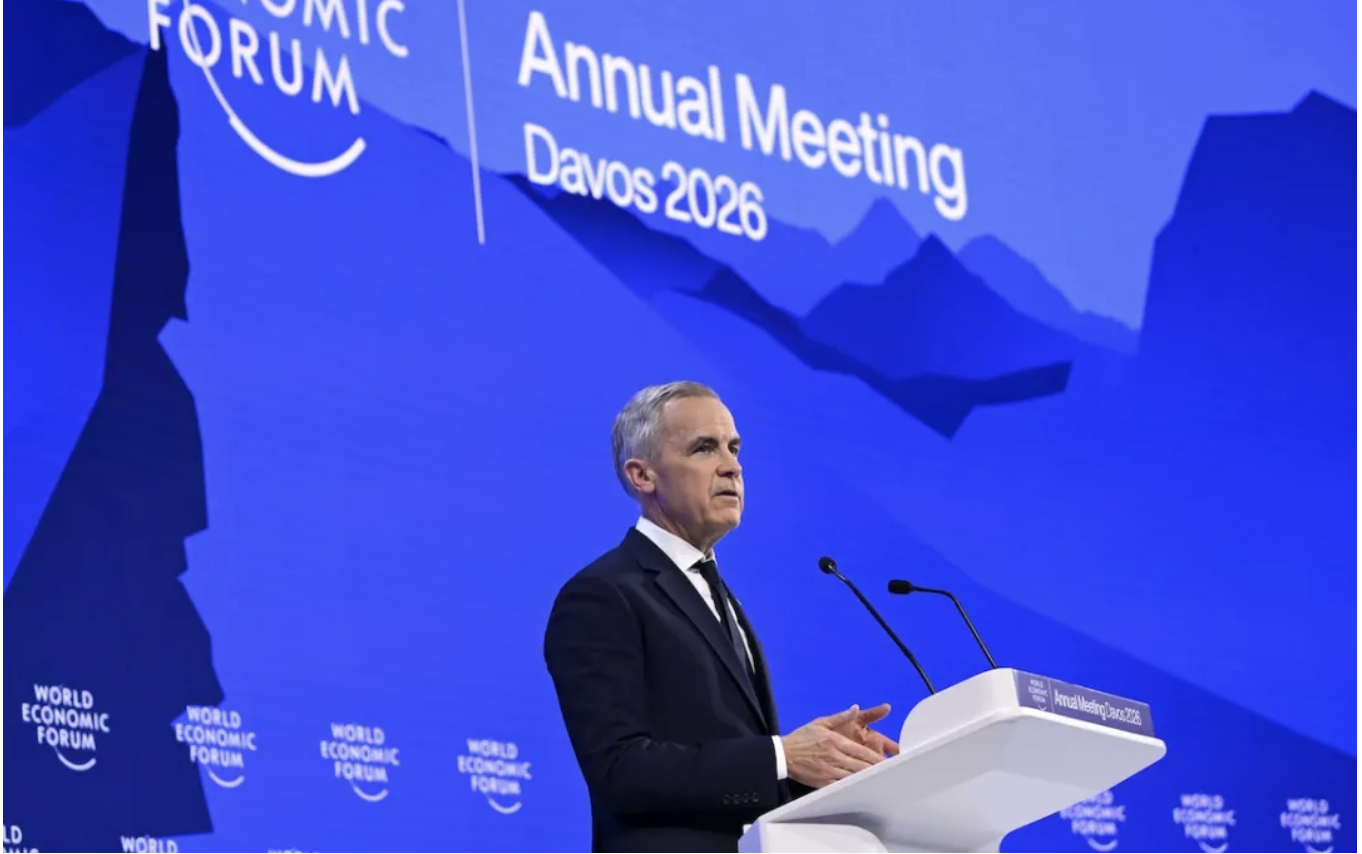特朗普和欧盟委员会主席乌尔苏拉·冯德莱恩周日描述了一项协议的核心内容。
Trump and European Commission President Ursula von der Leyen described the bones of an agreement on Sunday.
“describe the bones of” 是表达“概述、勾勒要点”的地道说法。这里强调的是协议还不完整,更多细节待补充。
它对欧盟对美国的大多数出口产品征收15%的全面关税,同时欧洲承诺向美国经济投资6000亿美元,在美国能源产品上花费7500亿美元——尽管还有很多细则要出台。
It sets across-the-board tariffs of 15 per cent on most European Union exports to the United States, along with a commitment by Europe to invest $600 billion US in the American economy and spend $750 billion on U.S. energy products — although there's plenty of fine print still to come.
“across-the-board tariffs” 是“全面征税”的意思。
“along with a commitment” 表示“伴随……的承诺”,常用于外交协议中。
“fine print” 指“细则/附加条款”,常带有“可能隐藏限制或附加条件”的含义。
这使得它与特朗普上周宣布的与日本的协议大致相当:全面征收 15% 的关税,并承诺日本在美国投资 5500 亿美元。
That makes it broadly comparable to the deal Trump announced last week with Japan: a 15 per cent across-the-board tariff and a Japanese commitment to invest $550 billion in the U.S.
“broadly comparable to” = “大致相当”
特朗普威胁要在8月1日对欧洲征收30%的基准关税,对日本征收25%的基准关税,因此两个贸易集团都将这些交易视为胜利。
Trump was threatening to hit Europe with 30 per cent baseline tariffs and Japan with 25 per cent on Aug. 1, so both trading blocs are selling the deals as wins.
“threatening to hit...with tariffs” 固定搭配,意为“威胁对……征收关税”。
“sell the deals as wins” 是新闻中常见表达,意为“把协议包装为胜利成果”。
由于加拿大在同一天面临对某些商品征收 35% 关税的威胁,这是否意味着加拿大应该以达成类似协议为目标?
Because Canada is facing the threat of 35 per cent tariffs on some goods on the same date, does that mean Canada should be aiming for a similar agreement?
“aiming for a similar agreement” 表示“寻求达成类似协议”,结构紧凑,用法自然。
总理马克·卡尼当然不是这么说的。当被问及即将达成的任何协议是否会“在这 15% 的基准关税范围内”时,他强调了欧洲和加拿大与美国的贸易关系之间的差异。
Prime Minister Mark Carney certainly isn't saying so. Asked whether any forthcoming deal will be "in the ballpark" of those 15 per cent baseline tariffs, he emphasized the differences between Europe's and Canada's trading relationship with the U.S.
“in the ballpark of” 是美式英语表达,意思是“在大致范围内”
“我们处于不同的位置,这就是为什么这些谈判......是不同的,“卡尼周一表示,理由是加拿大地理位置接近,而且对美国的能源出口。
"We are in a different position, and that is why these negotiations ... are different," Carney said on Monday, citing Canada's geographical closeness and energy exports to the U.S.
“citing…” 是新闻报道中引用官员解释理由时的常用动词,
“We are in a different position”语义模糊但外交上很常用,用以强调立场差异。
“欧洲在昨天的协议中承诺购买美国能源,”他在爱德华王子岛举行的新闻发布会上说。“美国需要加拿大的能源。”
"Europe, in that agreement yesterday, made commitments to buy American energy," he said at a news conference in Prince Edward Island. "America needs Canadian energy."
Across-the-board tariffs
'difficult for Canada to accept'
“加拿大难以接受”全面关税
加拿大不愿实现 15% 的基准关税率有很多原因,因为加拿大经济在比例上比欧洲和日本更依赖美国市场。
There are plenty of reasons why a 15 per cent baseline tariff rate is not something for Canada to aspire to, given that its economy is proportionally far more dependent on the U.S. market than Europe's and Japan's are.
“not something for Canada to aspire to” 意为“加拿大不值得追求的目标”,语气委婉却明确。
句尾用了比较结构:“more...than...are”,其中省略主语谓语
McMillan LLP 渥太华律师事务所的国际贸易律师乔纳森·奥哈拉表示,加拿大应该将目光投向比欧盟或日本谈判的更好的协议,因为它已经与美国经济紧密结合。
Jonathan O'Hara, an international trade lawyer in the Ottawa law office of McMillan LLP, said Canada should set its sights on a better deal than the EU or Japan negotiated since it's already so tightly integrated with the American economy.
“set its sights on…” 是固定搭配,意为“以……为目标”;
“tightly integrated with”表示“紧密结合”,在讲双边经济合作时常用。
“从广义上讲,我认为,加拿大很难接受某种全面的关税,”奥哈拉在周末接受 CBC 新闻采访时说。
"On a broad level, having some kind of across-the-board tariffs, I think, would be very difficult for Canada to accept," O'Hara said in a weekend interview with CBC News.
然而,加拿大似乎实际上并没有面临真正全面关税的前景。这是因为它拥有欧盟和日本都没有的东西:真正的自由贸易协定。
Yet it appears that Canada doesn't actually face the prospect of tariffs that are truly across-the-board. That's because it has something that neither the European Union nor Japan have: an actual free-trade deal.
“face the prospect of…” 是一个常用于不确定或不利预期的表达
特朗普的“芬太尼紧急”关税目前定为 25%——他威胁要在周五提高到 35%——只针对那些不符合加拿大-美国-墨西哥协议 (CUSMA) 原产地规则的商品。
Trump's "fentanyl emergency" tariffs, currently set at 25 per cent — which he's threatening to raise to 35 per cent on Friday — hit only those goods that don't comply with the rules of origin in the Canada-U.S.-Mexico Agreement (CUSMA).
“fentanyl emergency” 是引用特朗普政府的名义,实质上用于贸易保护
“don't comply with the rules of origin” 是自由贸易协议中的常见表达,指商品未达到免税资格
这意味着加拿大对美国的绝大部分出口目前都是免关税过境的。
That means the vast bulk of Canada's exports to the U.S. are currently crossing the border tariff-free.
“the vast bulk of…” = “绝大多数”;
“crossing the border tariff-free” 是一个地道的动词+副词结构,表达“免税过境”






